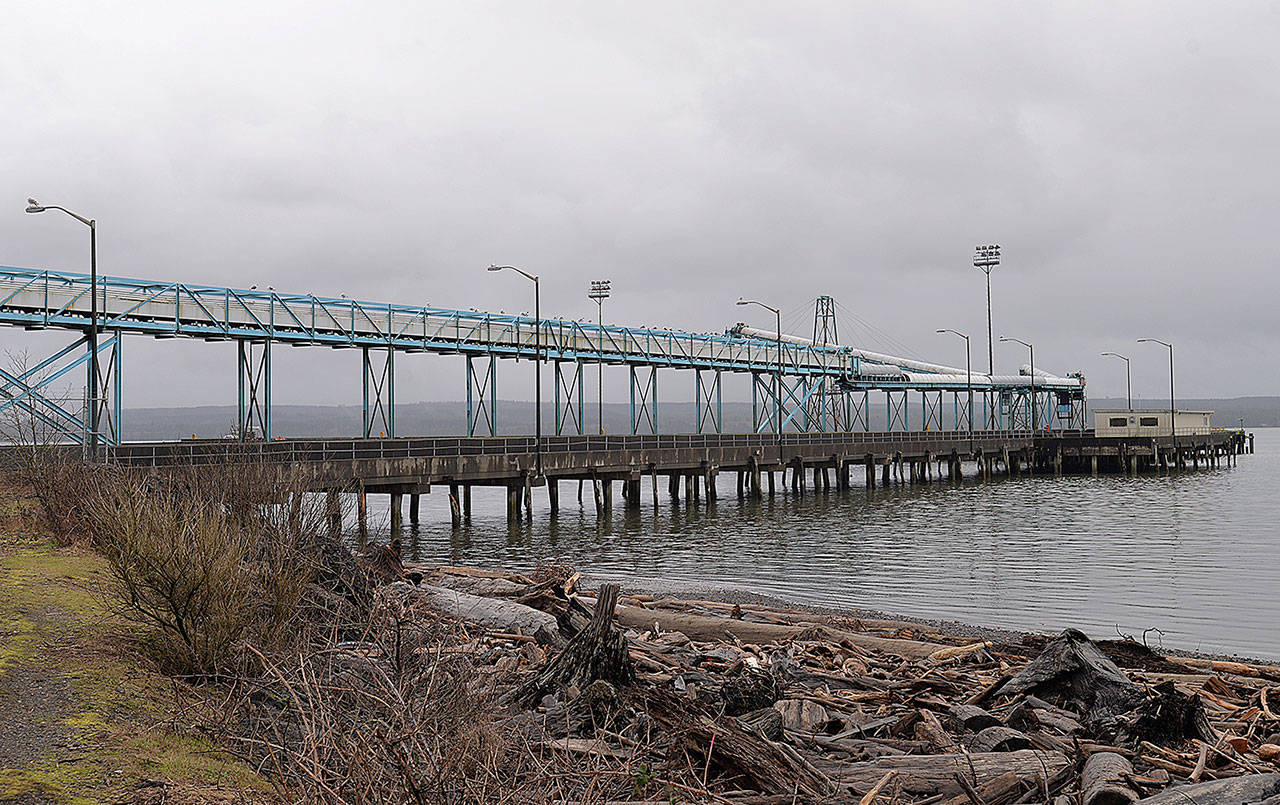Story updated Oct. 23
A public hearing regarding global mining company BHP’s shorelines application permit with the City of Hoquiam for a proposed potash shipping facility at the Port of Grays Harbor is scheduled for Thursday, Oct. 24, 10 a.m. at Hoquiam City Hall.
The project involves redeveloping Terminal 3, the port terminal near Bowerman Field and the city’s sewer treatment operation, and some adjacent properties into a facility to receive, store and ship potash, a potassium based product used in the production of agricultural fertilizer.
BHP resubmitted its application with the city in August after a lengthy outreach program with stakeholders, including environmental groups, residents, the Quinault Indian Nation and others. The city, along with a consultant, filed a determination of non-significance on the application, stating the project would not have significant adverse environmental impacts and does not require a full Environmental Impact Statement.
Public comment
Written public comment was accepted through mid-October. There were more than 30 comments provided, many of them in support of the project, said City Administrator Brian Shay.
Submitting letters of support were all three Grays Harbor County Commissioners, all six state legislators from the 19th and 24th districts, a number of local businesses, and others.
Several letters were drafted by organizations like Friends of Grays Harbor, Citizens for a Clean Harbor, and others asking that the determination of non-significance be withdrawn and calling for a full Environmental Impact Statement of the project. The Quinault Indian Nation, which has been involved in numerous talks with BHP on the project, wrote that the documents provided by BHP as they stood as of mid-October do not sufficiently prove the project, as mitigated, will not cause significant adverse environmental impacts.
The project
The facility would cost an estimated $400 million dollars and provide about 40-50 full time and casual positions, according to BHP Study Manager Trevor Heuer. Potash would be loaded at the Jansen Mine in Saskatchewan, Canada, and taken by rail to the Terminal 3 facility. There, it would be unloaded and either taken by covered conveyor to awaiting ships or stored.
At full capacity, the facility would bring eight to 10 trains, each about a mile long, per week. Heuer said that would about double the current train traffic through the area. To accommodate the trains, the facility will include a rail loop that can hold up to three trains at a single time within the boundaries of the facility.


